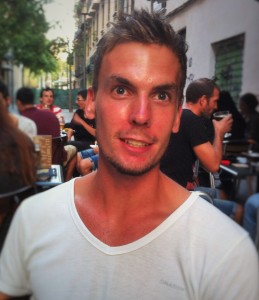 In today’s podcast we hear about ‘‘International students and their internship experience abroad”. We talk to Sander, a Dutch student who is living in Spain working in a bike tour company and he told us about how to plan, organize and prolong a student internship then we listen to an interview with two gypsy artists Delaine and Damian from Great Britain who are traveling the whole world and exhibiting their art in various places, e.g. at VHS Aachen Continue reading “Absolutely Intercultural 195 +++ international students +++ internship experience abroad +++ gypsy art +++”
In today’s podcast we hear about ‘‘International students and their internship experience abroad”. We talk to Sander, a Dutch student who is living in Spain working in a bike tour company and he told us about how to plan, organize and prolong a student internship then we listen to an interview with two gypsy artists Delaine and Damian from Great Britain who are traveling the whole world and exhibiting their art in various places, e.g. at VHS Aachen Continue reading “Absolutely Intercultural 195 +++ international students +++ internship experience abroad +++ gypsy art +++”
Tag: Dr. Elmar-Laurent Borgmann
IATEFL+++ Côte d’Ivoire +++ Palestine +++ Kenya +++ culturally responsive teaching +++ Absolutely Intercultural 194
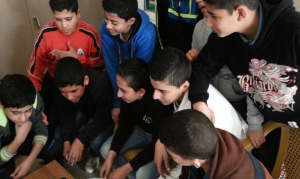
Today we’ll be hearing about some amazing efforts by an English teacher in Côte d’Ivoire to get his students confident in speaking English. Our contributor’s name is also interesting! Then we’ll be talking to a Palestinian teacher I met at the IATEFL conference earlier this year whose students used Skype to show how a Palestinian wedding is arranged. And we’ll be hearing about church services in Kenya. We also have news of additions to our website and a new newsletter that you can subscribe to if you are a teacher who wants to be more culturally responsive in the classroom. In fact we have a couple of other new things up our sleeves before the end of 2015, so stay tuned! Continue reading “IATEFL+++ Côte d’Ivoire +++ Palestine +++ Kenya +++ culturally responsive teaching +++ Absolutely Intercultural 194”
Absolutely Intercultural 193 +++ selfies +++ image projection +++ selfie gadgets +++
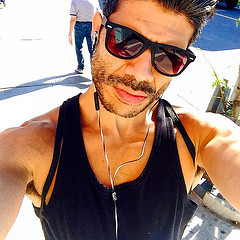 Listen to today’s podcast and find out about ‘‘Selfies’’. We talk to three of our exchange students from Croatia, Australia and Pakistan and learn about their perspectives on taking selfies. Continue reading “Absolutely Intercultural 193 +++ selfies +++ image projection +++ selfie gadgets +++”
Listen to today’s podcast and find out about ‘‘Selfies’’. We talk to three of our exchange students from Croatia, Australia and Pakistan and learn about their perspectives on taking selfies. Continue reading “Absolutely Intercultural 193 +++ selfies +++ image projection +++ selfie gadgets +++”
SIETAR +++ Third Culture Kid +++ Shelley Morrison +++ Lisa Liang +++ Alien Citizen +++ Absolutely Intercultural 192 +++
 In May I attended the SIETAR conference in Valencia, Spain and today I’m going to bring you two very different tastes from the conference. SIETAR is the Society for Intercultural Education Training and Research and we will be hearing about third culture kids and how to train people to work well together online. Continue reading “SIETAR +++ Third Culture Kid +++ Shelley Morrison +++ Lisa Liang +++ Alien Citizen +++ Absolutely Intercultural 192 +++”
In May I attended the SIETAR conference in Valencia, Spain and today I’m going to bring you two very different tastes from the conference. SIETAR is the Society for Intercultural Education Training and Research and we will be hearing about third culture kids and how to train people to work well together online. Continue reading “SIETAR +++ Third Culture Kid +++ Shelley Morrison +++ Lisa Liang +++ Alien Citizen +++ Absolutely Intercultural 192 +++”
Absolutely Intercultural 191 +++ Storytelling +++ Germany +++ Pakistan +++ Canada +++
The focus o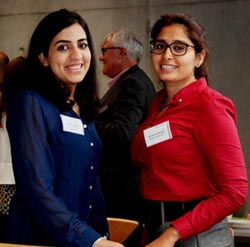 f today’s show is on storytelling and we hear from students and how they have used story telling in different situations including in work and at university. We also hear from an exchange student from Pakistan and learn about some of the cultural differences between Germany and Pakistan. Continue reading “Absolutely Intercultural 191 +++ Storytelling +++ Germany +++ Pakistan +++ Canada +++”
f today’s show is on storytelling and we hear from students and how they have used story telling in different situations including in work and at university. We also hear from an exchange student from Pakistan and learn about some of the cultural differences between Germany and Pakistan. Continue reading “Absolutely Intercultural 191 +++ Storytelling +++ Germany +++ Pakistan +++ Canada +++”
IATEFL +++ Manchester +++ Pakistan +++ Nepal +++ Bangladesh +++ Afghanistan +++ Zimbabwe +++ Cameroon +++ Absolutely Intercultural 190 +++
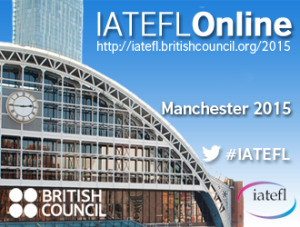 In this show I will be taking you to Bangladesh, Pakistan, Afghanistan, Nepal, Cameroon and Zimbabwe. For example why do people learn English in Pakistan? And what do you think the best way of delivering training would be to the semi-literate migrant workers of Bangladesh? This show includes snippets of recordings made at the IATEFL conference in Manchester last month. Continue reading “IATEFL +++ Manchester +++ Pakistan +++ Nepal +++ Bangladesh +++ Afghanistan +++ Zimbabwe +++ Cameroon +++ Absolutely Intercultural 190 +++”
In this show I will be taking you to Bangladesh, Pakistan, Afghanistan, Nepal, Cameroon and Zimbabwe. For example why do people learn English in Pakistan? And what do you think the best way of delivering training would be to the semi-literate migrant workers of Bangladesh? This show includes snippets of recordings made at the IATEFL conference in Manchester last month. Continue reading “IATEFL +++ Manchester +++ Pakistan +++ Nepal +++ Bangladesh +++ Afghanistan +++ Zimbabwe +++ Cameroon +++ Absolutely Intercultural 190 +++”
Mongolia +++ Aberdeen +++ Kenya +++ Inside Out +++ Absolutely Intercultural 188 +++
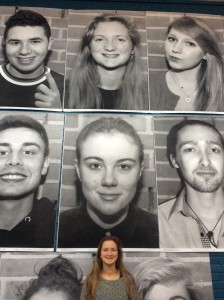 In this show we are going to go to Mongolia, to Kenya and to Aberdeen. There IS an over-arching theme but I wonder if you can guess what it is? Continue reading “Mongolia +++ Aberdeen +++ Kenya +++ Inside Out +++ Absolutely Intercultural 188 +++”
In this show we are going to go to Mongolia, to Kenya and to Aberdeen. There IS an over-arching theme but I wonder if you can guess what it is? Continue reading “Mongolia +++ Aberdeen +++ Kenya +++ Inside Out +++ Absolutely Intercultural 188 +++”
Stereotypes +++ Dubuque +++ Yartey +++ Ideal Global Life Summit +++ Absolutely Intercultural 186
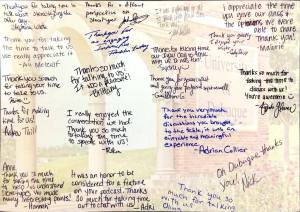 Happy New Year! Welcome to the first Absolutely Intercultural show of 2015 brought to you by Anne Fox in Denmark.
Happy New Year! Welcome to the first Absolutely Intercultural show of 2015 brought to you by Anne Fox in Denmark.
absolutely global
We start by going absolutely global as the Living Your Ideal Global Life Summit, which ran for the first time last January, is about to happen again. I will let Sabrina Ziegler one of the main organisers, tell us what we can expect this year. Don’t forget that it is free to participate, you can sign up at the website and the dates are from 26 to 30 January. If we’re lucky we may be bringing you a few highlights from the summit in a future show. Continue reading “Stereotypes +++ Dubuque +++ Yartey +++ Ideal Global Life Summit +++ Absolutely Intercultural 186”
Scotland +++ referendum +++ Ewan McIntosh +++ Absolutely Intercultural 184 +++
 Yes it may be cliché Scottish music, but Amazing Grace is the only bagpipe music that I could find with a Creative Commons licence, and I did like a bit of bagpipe music when I lived in Scotland a long time ago. A couple of months ago I was on a trip to Scotland where all the talk was about the Scottish referendum so I thought I would talk to a few people about it, but would they talk to me? Continue reading “Scotland +++ referendum +++ Ewan McIntosh +++ Absolutely Intercultural 184 +++”
Yes it may be cliché Scottish music, but Amazing Grace is the only bagpipe music that I could find with a Creative Commons licence, and I did like a bit of bagpipe music when I lived in Scotland a long time ago. A couple of months ago I was on a trip to Scotland where all the talk was about the Scottish referendum so I thought I would talk to a few people about it, but would they talk to me? Continue reading “Scotland +++ referendum +++ Ewan McIntosh +++ Absolutely Intercultural 184 +++”
Absolutely Intercultural 183 +++ Internship Abroad +++ Intercultural Preparation +++ tourist-industry +++ First Impressions In Germany +++ Australian +++
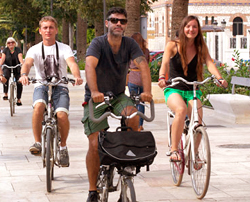 Isn’t it great to experience new cultures by travelling to different parts of the world? Four weeks ago I spent my holiday in Andalucía, in Spain. I have wanted to go there for a long time: Granada, Cordoba, Sevilla – the place names have always sounded attractive to me.
Isn’t it great to experience new cultures by travelling to different parts of the world? Four weeks ago I spent my holiday in Andalucía, in Spain. I have wanted to go there for a long time: Granada, Cordoba, Sevilla – the place names have always sounded attractive to me.
On the first day my wife and I took part in a guided bicycle tour in Malaga – and by chance – we met Nils Langer. He told me that in the framework of his studies at the university he is completing a tourism internship in a Spanish bicycle shop
Quite a number of my students take on internships abroad in order to gain intercultural awareness and to improve their language- and transferable skills. They are culturally immersed in their host country much more than during a regular holiday. Working as an intern abroad provides them with insights into foreign work environments and working styles. Afterwards they benefit from the new international contacts they made during their internships abroad.
